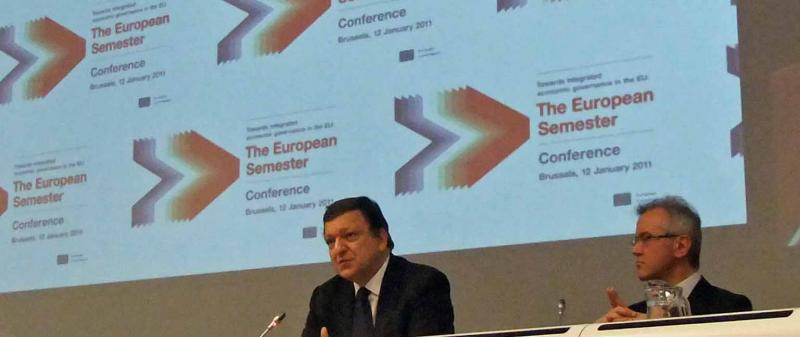
Corporate EUtopia
2011 may mark a watershed in the history of the European Union. Using the pretext of the “euro crisis”, the European Commission and the Council have put forward proposals to give the EU new powers to deal with core welfare issues, including social benefits and wages, under a new technocratic procedure – hard (if not impossible) to track, let alone influence by those who stand to lose out. The proposals embody a corporate social and economic agenda which, if enacted, will constitute a “silent revolution” imposed from above, with no real democratic debate or popular participation.
The proposed changes – which involve a series of proposed rules on ‘economic governance’ – have been welcomed by the EU’s key big business lobby groups, which see some of their traditional key lobby demands reflected in the changes. There is an urgent need for a democratic debate throughout the EU, in particular on alternatives to the austere neoliberal model of ‘economic governance’ that is now being pushed by the Commission and the Council. And it will require a broad-based social struggle to make the alternatives a reality.
A lot has happened since this article was written in January. Though the basic analysis still holds, the update from late April 2011 that can be downloaded below, might be useful.
The full article in English or French and the update can be downloaded here:
